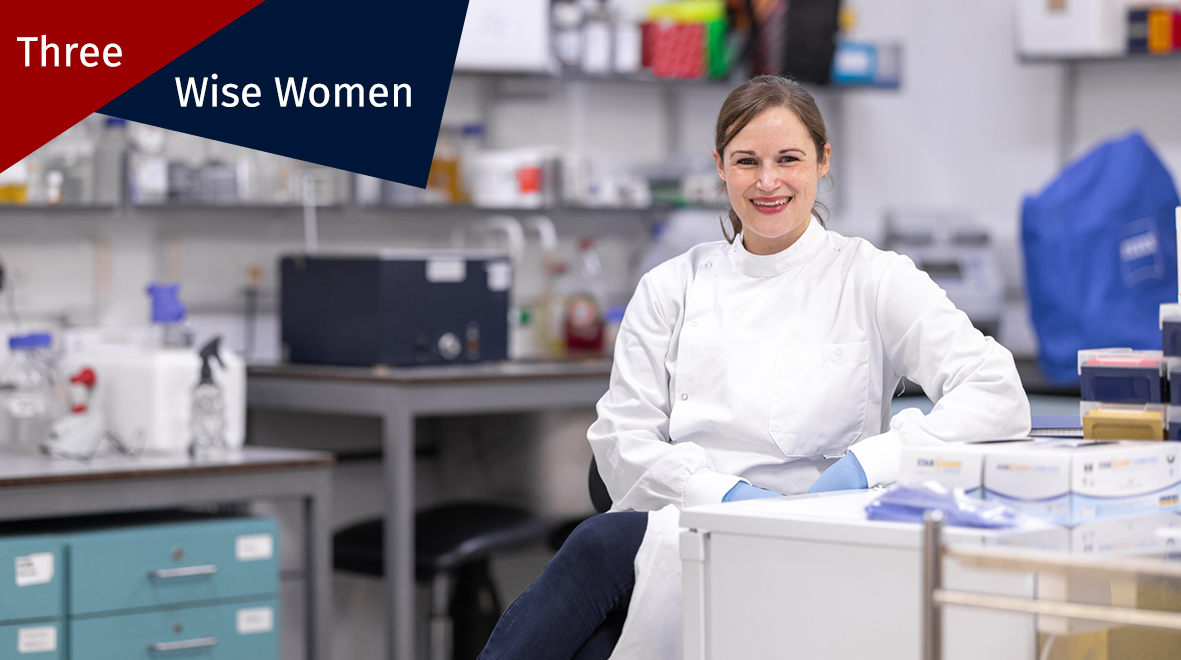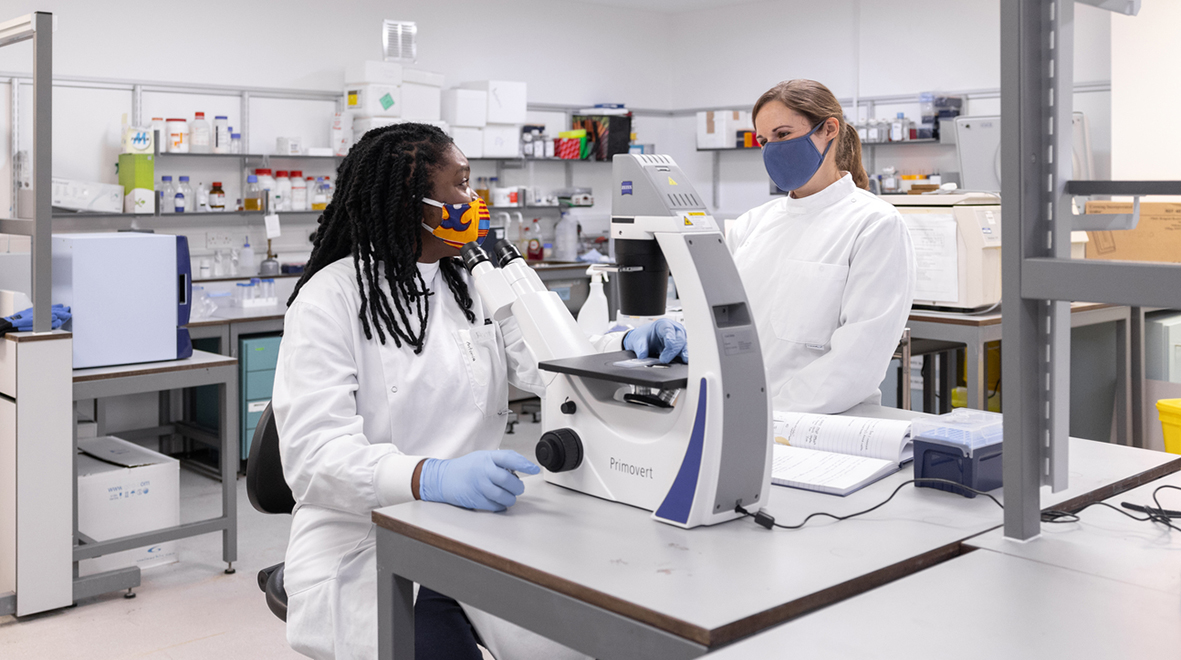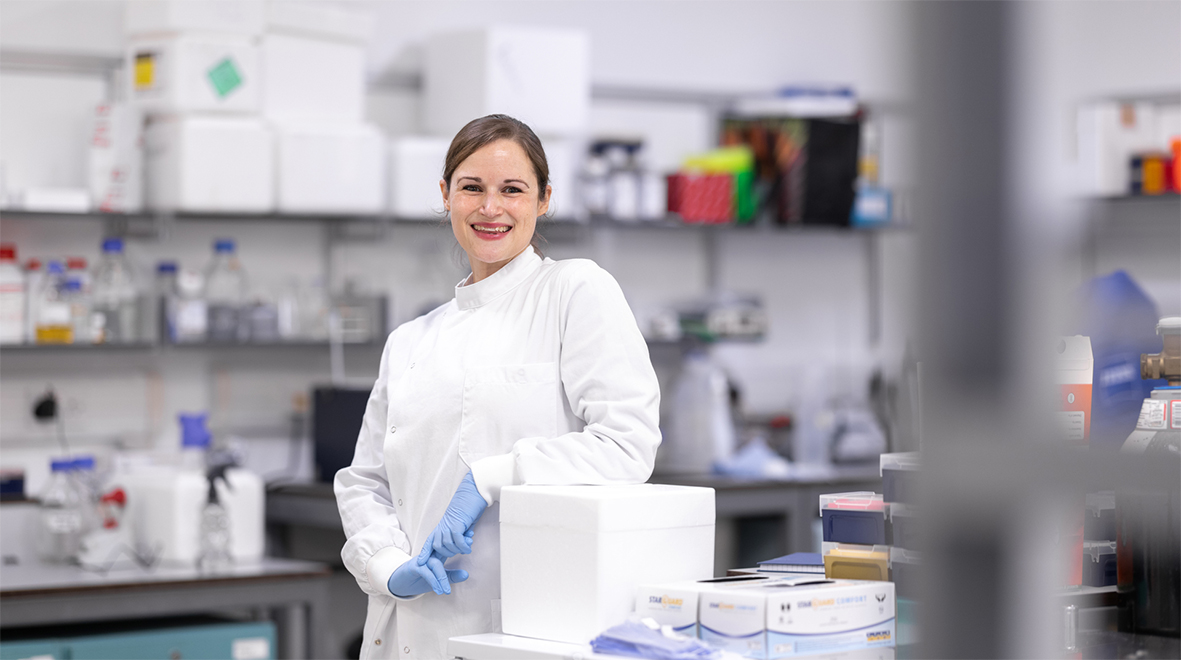
This festive period Three Wise Women from the Faculty of Medicine will be giving us the gift of wisdom.
Dr Viki Male explains how she took matters into her own hands in response to the mixed messaging around COVID-19 vaccination advice and pregnancy.
In 2003, the world was on the brink of a SARS-1 pandemic. As a Year 12 student at the time, I followed developments closely. Although the outbreak eventually died out, my interest in infectious diseases did not. Surely, the big one was coming. And I would be ready for it.
But by the time the big one came, my research has taken me in a different direction. At university, I had become passionately interested in a family of immune cells, called NK cells, that control viral infection. But these cells have another role that captured my imagination: they help the placenta to implant during pregnancy, and my lab is working out how. In March 2020, as immunologists around the world raced to make a vaccine, I shut my lab and went home to spend the next 12 weeks home-schooling my children. I would sit this one out. What use is a reproductive immunologist in a pandemic, anyway?
Some use, it turned out. In December 2020, as the vaccine rollout began, rumours started to circulate that antibodies raised by COVID-19 vaccination would target a placental protein, called Syncytin-1, causing infertility and miscarriages. There was no basis to this claim and if I, a reproductive immunologist, wouldn’t stand up and explain why, then what was the point of me? So I began engaging with the public, first on social media and then in print and broadcast. Here’s what they taught me…
People want the evidence
“There’s no evidence that COVID-19 vaccines harm fertility” was oft-repeated by doctors and scientists. By this, we meant that we had looked for such evidence and not found it. But many people heard this as “we simply haven’t looked”. So I started talking to people specifically about the types of approaches that have been taken to examine post-vaccine fertility and pregnancy rates, and what the studies had found. Similarly, when the vaccines started to be offered in pregnancy, those deciding whether they should accept were, naturally, keen to know exactly what had been done to show that it was safe and effective.

Reproductive health shouldn’t be an afterthought
One of the big challenges of having discussions about the safety of COVID-19 vaccines in pregnancy, particularly early in the year, was the fact that pregnant people had not been included in the clinical trials. This meant that pregnant people were making their decision on whether to get vaccinated in an information vacuum. Data on the safety and effectiveness of vaccination in pregnancy quickly came out from the USA and Israel, where they had taken the view that, given the increased risks of COVID-19 in pregnancy, and the theoretical safety of the vaccine, pregnant people should be offered the vaccine in advance of the completion of clinical trials in this population.
But it need not have been this way. We ought to have anticipated that vaccination in pregnancy would be necessary in the broader population, and designed the trials to assess this. Indeed, a set of guidelines have been developed specifically to allow pregnant participants in vaccines trials during public health emergencies. One lesson I hope we take from the pandemic is that pregnant people should be included in trials, and not just for vaccines. Many people discontinue their life-saving or life-enhancing medication when they become pregnant because they are unsure of its safety. Formal trials will generate the information these people need to make properly informed decisions.
Clear communication saves lives
The UK took a more cautious approach to COVID-19 vaccination in pregnancy: initially, the vaccine was not offered to this group, and then only to those at high risk. This meant that, in April, when the vaccines were offered to all pregnant people, many were hesitant: weren’t we saying before that the vaccines weren’t safe for them? The price of this hesitance is that the infection rate in this group is much higher than it ought to be and, as a result, we are seeing more pregnant people in intensive care, and more preterm deliveries, than we normally would. This could have been avoided with better communication at the time the guidance changed, explaining why this decision had been taken and giving a whole-hearted recommendation of COVID-19 vaccination in pregnancy. Canada, who approved vaccination in pregnancy shortly after we did, took this approach including actively prioritising pregnant people for vaccination. As a result, they have seen higher vaccine uptake than the UK have.
Although the Christmas I celebrate now is fundamentally a pagan one, the Christmas of my childhood revolved around the story of a new baby and his parents, trying to make it in a world that was against them. This Christmas, let’s take a moment to reflect on what the pandemic has taught us about how we can improve the outcomes for babies and their families in the future. And I wish you all a happy and healthy 2022!
Dr Viki Male is a Lecturer in Reproductive Immunology based in Imperial’s Department of Metabolism, Digestion and Reproduction.
Photography by Thomas Angus / Imperial College London.
Thank you Dr Viki Male for an inspiring insight into the world of reproductive health. And it conveys a wider sense of the flowering of research at I.C. since my time as a student.
In particular the comprehensive I.C. coverage with the Coronavirus pandemic has been outstanding.